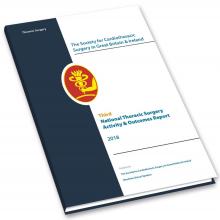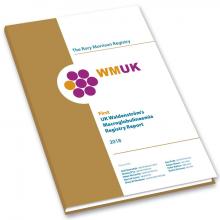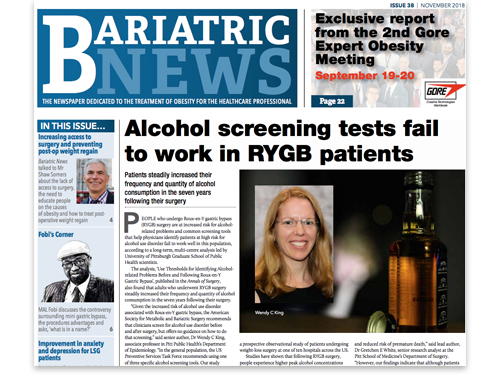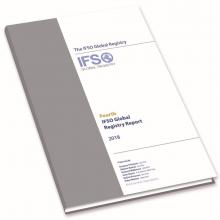 “I am very pleased to report that demand for the Dendrite Web-Registry platform has reached an all-time high” Dr Peter Walton, Managing Director of Dendrite Clinical System. “We’re receiving new orders for new national and international registries every few days now – for surgical registries, medical registries, rare disease registries, medical device registries and Coronavirus Registries (for a range of Community, National, International and Global Covid-19 Registries).”
“I am very pleased to report that demand for the Dendrite Web-Registry platform has reached an all-time high” Dr Peter Walton, Managing Director of Dendrite Clinical System. “We’re receiving new orders for new national and international registries every few days now – for surgical registries, medical registries, rare disease registries, medical device registries and Coronavirus Registries (for a range of Community, National, International and Global Covid-19 Registries).”
“Over 90% of our new web-registry orders include our innovative e-PROMS module that enables patients to enter data into registries remotely”. The automated e-PROMS module can automatically send (at designated time intervals) a secure personalised message to appropriately consented patients and they can complete a PROMS questionnaire on their smart-phones, iPads or computers anywhere in the world (provided they have Internet access) and when completed, the data returns automatically to the registry.
“We have instituted over 35 different PROMS instruments ranging from generic outcome Euroqol EQ-5D type questionnaires, to a very wide range of disease or treatment specific PROMS instruments such as the Breast Q for breast reconstruction with DIEP/SIEA flap, the Atrial Fibrillation Severity Score and the Multiple Sclerosis Quality of Life MSQoL-54 questionnaire,” Dr Walton added. “A great benefit of our e-PROMS module is that essentially the patient is doing the work of data collection and the data just streams in. The e-PROMS module is guaranteed to provide safe and secure patient data collection, and we look forward to working with all our current and future customers to help them develop and expand PROMS data collection.”
Patient Reported Outcome Measures (PROMs) are standardised, validated instruments or questionnaires that are completed by patients to measure their perception of their functional well-being and health status, and patients rate their health by scoring the severity or difficulty in completing certain tasks or routine activities. Dendrite’s flexible innovative e-PROMS module can be adapted include bespoke instruments across the whole spectrum of clinical scenarios, whilst maintaining patient anonymity and confidentiality, ensuring data validation, increasing efficiency and simplifying the data collection process).
 Dendrite Clinical Systems and the Society for Cardiothoracic surgery (SCTS) have published a new report that demonstrates importance collecting and analysing data from thoracic surgery. The report states that a large increase in thoracoscopic (VATS) resections is responsible for most of the recent increase in lung cancer surgery, rising from 749 cases in 2010-2011 to 2,753 in 2014-2015, an increase of more than 3.5 times.
Dendrite Clinical Systems and the Society for Cardiothoracic surgery (SCTS) have published a new report that demonstrates importance collecting and analysing data from thoracic surgery. The report states that a large increase in thoracoscopic (VATS) resections is responsible for most of the recent increase in lung cancer surgery, rising from 749 cases in 2010-2011 to 2,753 in 2014-2015, an increase of more than 3.5 times. Dendrite Clinical Systems is to install its Intellect System to track outcomes of cardiothoracic surgery at St George’s Hospital, Tooting, London, UK. The company’s data capture software currently supports approximately 85% of cardiac units in the UK.
Dendrite Clinical Systems is to install its Intellect System to track outcomes of cardiothoracic surgery at St George’s Hospital, Tooting, London, UK. The company’s data capture software currently supports approximately 85% of cardiac units in the UK.  Dendrite Clinical Systems and Waldenström’s Macroglobulinaemia United Kingdom Charity have published the First UK Waldenström’s Macroglobulinaemia Registry Report 2018 – the first report of its kind in the world.
Dendrite Clinical Systems and Waldenström’s Macroglobulinaemia United Kingdom Charity have published the First UK Waldenström’s Macroglobulinaemia Registry Report 2018 – the first report of its kind in the world.  Dendrite Clinical Systems, the publisher of Bariatric News, is pleased to announce issue 38 of the newspaper is now available to view/download. The newspaper reports on research, technology, events and policy in the bariatric specialty, the latest clinical studies, policy changes and product news, the latest meetings and events, interviews prominent bariatric experts, and host debates between specialists on controversial topics.
Dendrite Clinical Systems, the publisher of Bariatric News, is pleased to announce issue 38 of the newspaper is now available to view/download. The newspaper reports on research, technology, events and policy in the bariatric specialty, the latest clinical studies, policy changes and product news, the latest meetings and events, interviews prominent bariatric experts, and host debates between specialists on controversial topics. Dendrite Clinical Systems and the British Society for Allergy & Clinical Immunology (BSACI) have launched the British Registry for Immunotherapy (BRIT), a web-based patient registry that records immunotherapy treatment of patients under the care of BSACI consultants practicing in the UK.
Dendrite Clinical Systems and the British Society for Allergy & Clinical Immunology (BSACI) have launched the British Registry for Immunotherapy (BRIT), a web-based patient registry that records immunotherapy treatment of patients under the care of BSACI consultants practicing in the UK. Dendrite Clinical Systems, under the auspices of the International Federation for the Surgery of Obesity and Metabolic Disorders (IFSO), has published the Fourth IFSO Global Registry Report (2018) at the federation’s XXIII World Congress in Dubai, UAE. The latest report features data from more than 50 countries on over 394,000 operations including baseline obesity-related disease, operation types, operative outcomes and disease status after bariatric/metabolic surgery.
Dendrite Clinical Systems, under the auspices of the International Federation for the Surgery of Obesity and Metabolic Disorders (IFSO), has published the Fourth IFSO Global Registry Report (2018) at the federation’s XXIII World Congress in Dubai, UAE. The latest report features data from more than 50 countries on over 394,000 operations including baseline obesity-related disease, operation types, operative outcomes and disease status after bariatric/metabolic surgery.


